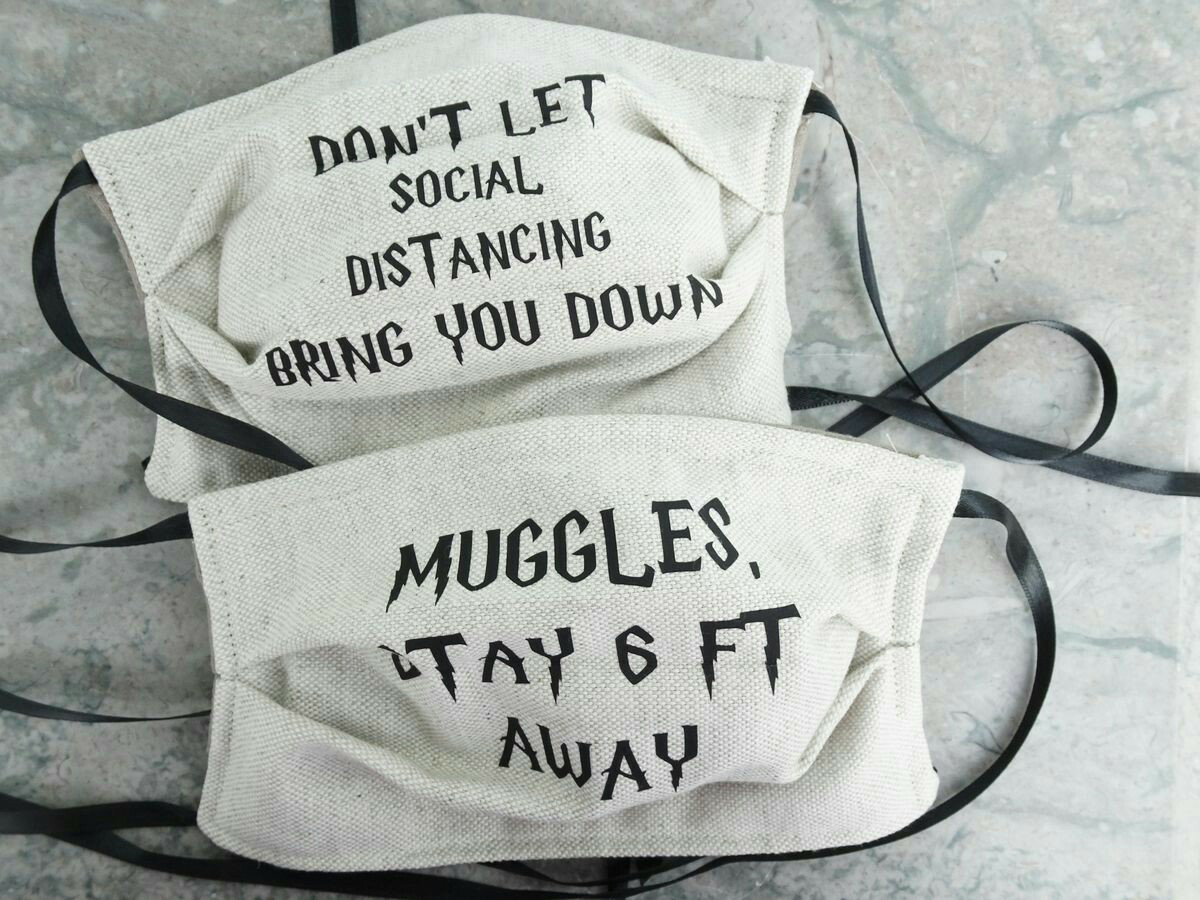This all started with the hashtag #maskingforafriend by Eve, she took a picture of herself wearing a black mask against a backdrop of wisteria flowers, on Instagram hashtagging her efforts #maskingforafriend. Soon after that Celebrities like Mayim Bialik, Matt McGorry followed with others joining the cause launched by the pandemic action network. The goal of these hashtags was to spread information on the benefits and importance of masking. It’s not just about protecting one’s self but also those around us.

This campaign has added bonus of celebrities normalising the act of wearing nose masks and proving that it can be trendy.
Many celebrities have been seen wearing nose masks in different colours and in different designs too.
Although in Asian countries wearing of nose masks in public has been a cultural norm way even before the COVID-19 pandemic, Nigerians adopted this at the onset of the COVID-19 pandemic.
Organizational and industrial psychologist Lana Ivanitskaya a professor at Central Michigan University, who is among the people who have been working hard to normalize mask-wearing says the see experiences shifted the cultural mindset towards respiratory protection.
We want to slay and be safe but one cannot do that with the regular N95 mask. Fashion designers on Instagram have gotten creative with Ankara masks while making sure it adheres to the 3-ply standard.
But how exactly do masks protect individuals from Covid-19?
Due to the confusion surrounding the benefits of using masks against Covid-19 bot by individuals and the government, this question has been asked a lot of times, but thanks to evolving science and a better understanding of exactly whom masks protect, most health officials seem to finally be on the same page and more people have a better understanding.
Dr Mike Bell, trusted source deputy director of the centres for the disease control and prevention (CDC), Georgia, United States, said “CDC trusted source recommends that people wear a cloth face covering to cover their nose and mouth in the community setting”, he also added that “This is to protect people around you, if you’re infected but do not have symptoms, by blocking you respiratory droplet”.
Bell has also been working to provide the necessary medical prospective for the #maskingforafriend campaign saying that medical experts and scientist refer to such campaign as source control, and if everyone partakes in it, that it could drastically reduce the amount of infection spread.
He also added that these masks also prevent the spread of other respiratory infections mostly the type that typically renders people infectious even before they display symptoms, like Influenza.
But that doesn’t necessarily mean masks are for everyone, he added.
“Cloth face covering shouldn’t be placed on children younger than 2 years old, people with respiratory issues (breathing problems ) or anyone who is incapacitated, unconscious or otherwise unable to remove the cover without assistant” Bell explained.
As Nigeria is yet to flatten the curve, we urge fashionistas to slay safe.

